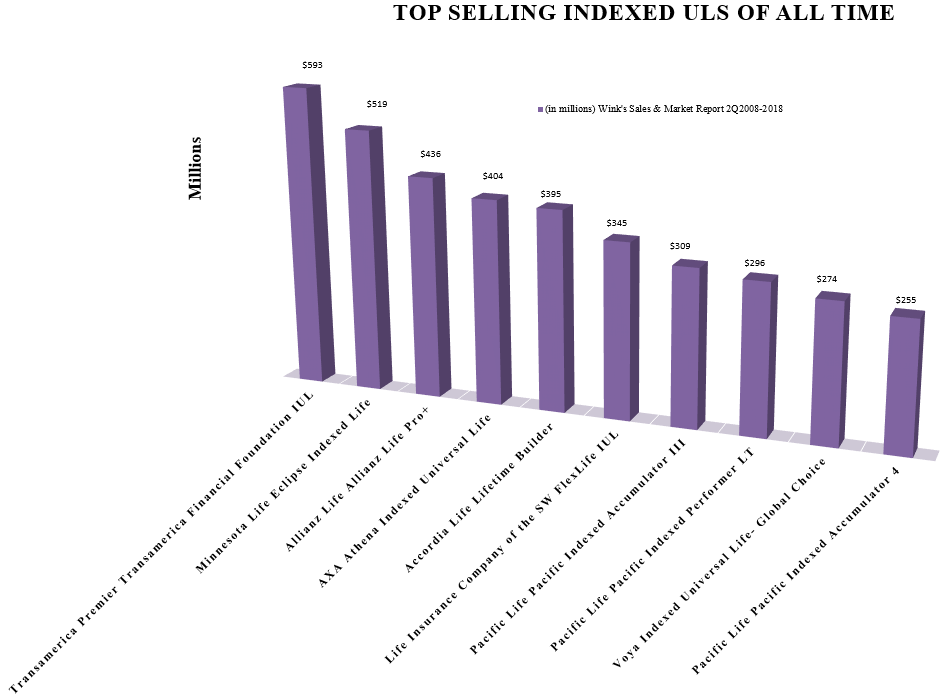All Categories
Featured
Table of Contents
1), often in an attempt to defeat their classification standards. This is a straw man debate, and one IUL people love to make. Do they contrast the IUL to something like the Vanguard Overall Securities Market Fund Admiral Show no load, an expenditure proportion (EMERGENCY ROOM) of 5 basis points, a turnover proportion of 4.3%, and an exceptional tax-efficient document of circulations? No, they contrast it to some terrible proactively taken care of fund with an 8% lots, a 2% ER, an 80% turnover ratio, and a terrible document of temporary resources gain circulations.
Common funds typically make annual taxed distributions to fund owners, also when the worth of their fund has gone down in worth. Shared funds not only call for income reporting (and the resulting yearly tax) when the mutual fund is going up in worth, but can also impose income tax obligations in a year when the fund has gone down in value.
That's not just how shared funds work. You can tax-manage the fund, gathering losses and gains in order to decrease taxed distributions to the financiers, however that isn't in some way mosting likely to change the reported return of the fund. Just Bernie Madoff kinds can do that. IULs prevent myriad tax catches. The ownership of common funds might need the shared fund proprietor to pay approximated tax obligations.

IULs are very easy to place so that, at the owner's death, the beneficiary is not subject to either earnings or inheritance tax. The same tax decrease techniques do not work nearly also with mutual funds. There are various, often expensive, tax catches related to the timed purchasing and marketing of common fund shares, traps that do not put on indexed life insurance policy.
Chances aren't really high that you're mosting likely to go through the AMT as a result of your common fund distributions if you aren't without them. The remainder of this one is half-truths at best. While it is true that there is no revenue tax obligation due to your heirs when they acquire the proceeds of your IUL plan, it is also real that there is no revenue tax obligation due to your successors when they inherit a mutual fund in a taxable account from you.
Ul Mutual Insurance Company
The government estate tax obligation exemption limitation is over $10 Million for a couple, and expanding each year with rising cost of living. It's a non-issue for the huge bulk of medical professionals, much less the remainder of America. There are far better methods to stay clear of inheritance tax concerns than purchasing financial investments with low returns. Shared funds may trigger earnings taxes of Social Safety and security advantages.

The development within the IUL is tax-deferred and may be taken as free of tax revenue using fundings. The plan proprietor (vs. the mutual fund manager) is in control of his/her reportable income, therefore enabling them to reduce or even get rid of the tax of their Social Protection benefits. This set is terrific.
Right here's an additional minimal issue. It's true if you acquire a common fund for say $10 per share simply prior to the circulation date, and it disperses a $0.50 distribution, you are after that mosting likely to owe tax obligations (most likely 7-10 cents per share) in spite of the reality that you have not yet had any type of gains.
In the end, it's truly about the after-tax return, not how much you pay in taxes. You are mosting likely to pay more in tax obligations by utilizing a taxed account than if you buy life insurance policy. But you're likewise possibly going to have even more cash after paying those tax obligations. The record-keeping requirements for having common funds are considerably extra complex.
With an IUL, one's records are kept by the insurance provider, copies of yearly statements are sent by mail to the proprietor, and circulations (if any type of) are completed and reported at year end. This set is also kind of silly. Naturally you ought to maintain your tax obligation records in situation of an audit.
Signature Indexed Universal Life
Barely a factor to get life insurance coverage. Shared funds are frequently component of a decedent's probated estate.
On top of that, they are subject to the hold-ups and expenses of probate. The earnings of the IUL plan, on the other hand, is constantly a non-probate circulation that passes beyond probate straight to one's named beneficiaries, and is therefore exempt to one's posthumous financial institutions, unwanted public disclosure, or similar hold-ups and costs.
Medicaid disqualification and life time income. An IUL can provide their owners with a stream of earnings for their whole lifetime, regardless of how long they live.

This is valuable when arranging one's events, and converting assets to earnings before a nursing home arrest. Common funds can not be transformed in a similar way, and are virtually constantly thought about countable Medicaid properties. This is another stupid one supporting that inadequate people (you know, the ones that require Medicaid, a federal government program for the bad, to pay for their assisted living home) must use IUL instead of common funds.
Indexed Universal Life Insurance Complaints
And life insurance policy looks awful when compared fairly versus a retired life account. Second, people that have money to buy IUL over and past their pension are mosting likely to need to be horrible at managing cash in order to ever before get approved for Medicaid to pay for their assisted living facility expenses.
Persistent and terminal illness rider. All policies will certainly allow a proprietor's simple access to money from their policy, commonly forgoing any kind of abandonment charges when such individuals experience a major ailment, require at-home care, or end up being restricted to a nursing home. Mutual funds do not offer a comparable waiver when contingent deferred sales fees still put on a shared fund account whose proprietor needs to sell some shares to money the expenses of such a stay.
New York Life Variable Universal Life Accumulator
You obtain to pay even more for that advantage (rider) with an insurance coverage policy. Indexed global life insurance policy supplies fatality advantages to the beneficiaries of the IUL proprietors, and neither the proprietor nor the recipient can ever before shed money due to a down market.
I certainly don't need one after I get to monetary self-reliance. Do I want one? On average, a purchaser of life insurance coverage pays for the true price of the life insurance coverage benefit, plus the expenses of the policy, plus the revenues of the insurance policy business.
Iul Life Insurance Companies
I'm not entirely sure why Mr. Morais included the entire "you can not lose money" again right here as it was covered rather well in # 1. He just wished to repeat the finest marketing factor for these things I mean. Again, you do not lose small bucks, however you can lose genuine dollars, in addition to face severe possibility expense as a result of low returns.

An indexed global life insurance coverage plan proprietor might exchange their policy for a completely different policy without activating earnings tax obligations. A common fund proprietor can stagnate funds from one common fund business to another without selling his shares at the previous (hence causing a taxed occasion), and redeeming brand-new shares at the latter, often subject to sales charges at both.
While it is real that you can trade one insurance policy for another, the reason that people do this is that the very first one is such an awful policy that even after acquiring a brand-new one and undergoing the early, unfavorable return years, you'll still appear ahead. If they were sold the appropriate policy the initial time, they should not have any type of wish to ever exchange it and go with the very early, negative return years again.
Latest Posts
Iul Insurance Meaning
Net Payment Cost Index Life Insurance
Universal Life Insurance Vs Term Life